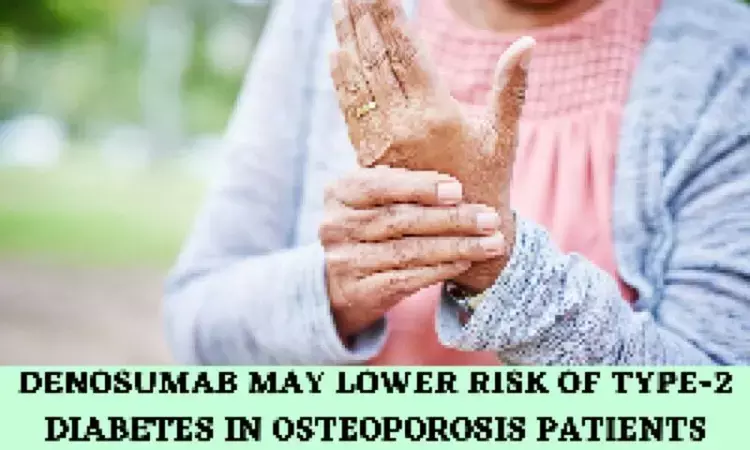- Home
- Medical news & Guidelines
- Anesthesiology
- Cardiology and CTVS
- Critical Care
- Dentistry
- Dermatology
- Diabetes and Endocrinology
- ENT
- Gastroenterology
- Medicine
- Nephrology
- Neurology
- Obstretics-Gynaecology
- Oncology
- Ophthalmology
- Orthopaedics
- Pediatrics-Neonatology
- Psychiatry
- Pulmonology
- Radiology
- Surgery
- Urology
- Laboratory Medicine
- Diet
- Nursing
- Paramedical
- Physiotherapy
- Health news
- Fact Check
- Bone Health Fact Check
- Brain Health Fact Check
- Cancer Related Fact Check
- Child Care Fact Check
- Dental and oral health fact check
- Diabetes and metabolic health fact check
- Diet and Nutrition Fact Check
- Eye and ENT Care Fact Check
- Fitness fact check
- Gut health fact check
- Heart health fact check
- Kidney health fact check
- Medical education fact check
- Men's health fact check
- Respiratory fact check
- Skin and hair care fact check
- Vaccine and Immunization fact check
- Women's health fact check
- AYUSH
- State News
- Andaman and Nicobar Islands
- Andhra Pradesh
- Arunachal Pradesh
- Assam
- Bihar
- Chandigarh
- Chattisgarh
- Dadra and Nagar Haveli
- Daman and Diu
- Delhi
- Goa
- Gujarat
- Haryana
- Himachal Pradesh
- Jammu & Kashmir
- Jharkhand
- Karnataka
- Kerala
- Ladakh
- Lakshadweep
- Madhya Pradesh
- Maharashtra
- Manipur
- Meghalaya
- Mizoram
- Nagaland
- Odisha
- Puducherry
- Punjab
- Rajasthan
- Sikkim
- Tamil Nadu
- Telangana
- Tripura
- Uttar Pradesh
- Uttrakhand
- West Bengal
- Medical Education
- Industry
Denosumab may lower risk of type 2 diabetes in adults with osteoporosis

China: A new study published in the BMJ: British Medical Journal suggests that denosumab, a medication used to treat osteoporosis, may have an added benefit for glucose metabolism compared with oral bisphosphonates.
The study aimed to assess the effect of denosumab versus oral bisphosphonates on the risk of type 2 diabetes in persons with osteoporosis.
The study involved the emulation of a randomized target trial using electronic health records. The study analyzed 4301 new users of denosumab from the IQVIA Medical Research Data primary care database in the United Kingdom from 1995 to 2021.
The participants included were adults aged 45 and over who were using denosumab or an oral bisphosphonate for osteoporosis. The main outcome was the occurrence of type 2 diabetes, as determined by diagnostic codes.
The study revealed the following clinical takeaways:
1. The incidence rate of type 2 diabetes in denosumab users was 5.7 per 1000 person-years.
2. The incidence rate of type 2 diabetes in oral bisphosphonate users was 8.3 per 1000 person-years.
3. Initiation of denosumab was associated with a reduced risk of type 2 diabetes.
4. Participants with prediabetes appeared to benefit more from denosumab compared with oral bisphosphonate.
5. Those with a body mass index ≥30 also appeared to benefit more from denosumab.
The study’s lead author Houchen Lyu added that “While this study provides important insights, further research is needed to confirm these findings and to investigate the underlying mechanisms. They also caution that the study was observational in nature, and therefore cannot establish causality.”
These findings suggest that denosumab may have potential benefits beyond its primary use in treating osteoporosis and could be an important consideration for healthcare providers treating patients at risk of both osteoporosis and type 2 diabetes.
Reference:
Lyu H., Zhao S., Zhang L., Wei J., Li X., et al.; Denosumab and incidence of type 2 diabetes among adults with osteoporosis: population based cohort study; BMJ 2023;381:e073435; doi: https://doi.org/10.1136/bmj-2022-073435
Dr. Mahalakshmi Sivashankaran joined Medical Dialogues as an Intern in 2023. She is a BDS graduate from Manipal College of Dental Sciences, Mangalore Batch 2022, and worked as a Junior Resident at VMMC & Safdarjung Hospital at the Department of Dental Surgery till January 2023. She has completed a Diploma in Executive Healthcare management from the Loyola Institute of Business Administration, developing skills in Healthcare Management and Administration. She covers several medical specialties including Dental, ENT, Diagnostics, Pharmacology, Neurology, and Cardiology.
Dr Kamal Kant Kohli-MBBS, DTCD- a chest specialist with more than 30 years of practice and a flair for writing clinical articles, Dr Kamal Kant Kohli joined Medical Dialogues as a Chief Editor of Medical News. Besides writing articles, as an editor, he proofreads and verifies all the medical content published on Medical Dialogues including those coming from journals, studies,medical conferences,guidelines etc. Email: drkohli@medicaldialogues.in. Contact no. 011-43720751


